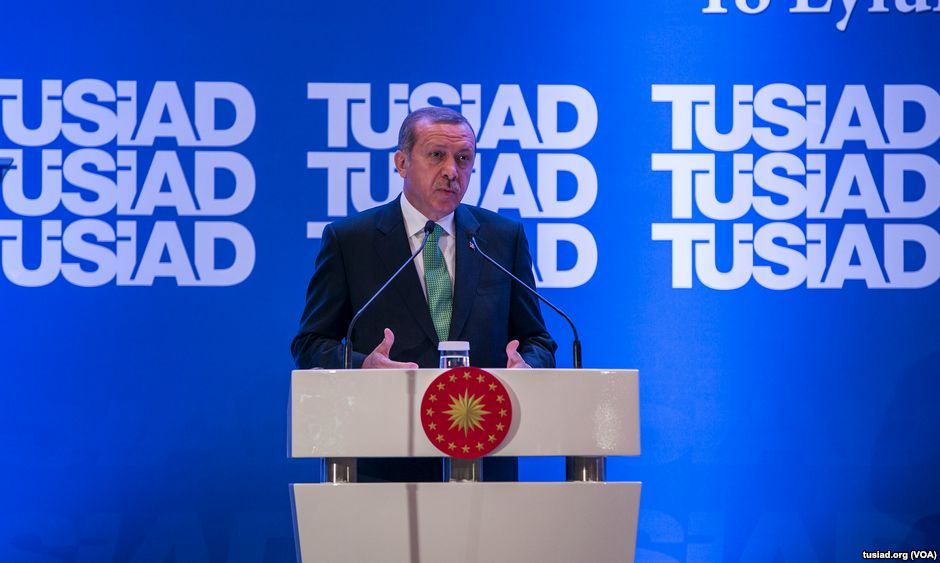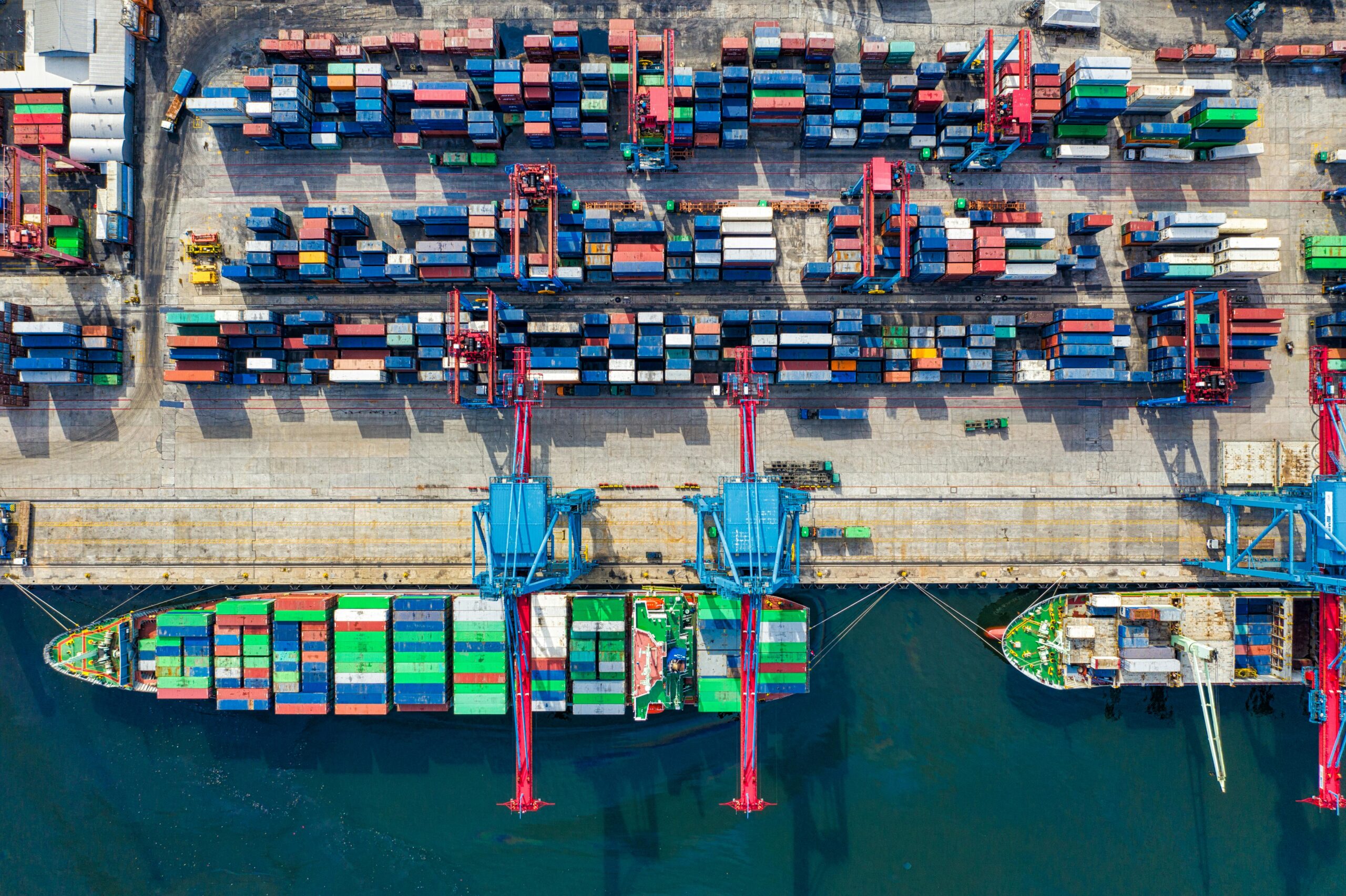In recent years, the Republic of Turkey has been grappling with significant economic problems. Major issues include high inflation, a devaluing Turkish lira against foreign currencies, substantial external debt, a shortage of well-paying jobs, an economy insufficiently resilient to natural disasters, uneven development across different economic sectors, social inequalities, reliance on tourism, and a lack of coordination between monetary and fiscal policies. However, the primary cause of Turkey’s economic crisis is the flawed and unthoughtful economic policies of President Recep Tayyip Erdogan’s administration. The Turkish people are facing rising living costs year after year, and the authorities have been unable to provide effective solutions. These economic hardships have put Erdogan’s authoritarian regime in jeopardy.
Relentless Inflation
According to data released by the Turkish Statistical Institute (TurkStat) on May 3, the annual consumer inflation rate in Turkey surged to 69.8% in April. This represents a significant increase from the 43.6% inflation rate in April 2023 and the highest rate since November 2022. Concurrently, the annual producer price inflation stood at 55.6%. The dramatic rise in inflation was driven primarily by higher costs in education, the hospitality sector, restaurants, cafes, and transportation. Consumer prices increased by 3.1% in April compared to March. Recently, the Turkish lira (TL) has plummeted, losing value against the US dollar and the euro. As of May 5, 1 USD equaled 32.35 TL, and 1 euro was worth 34.85 TL.
Turkey’s Finance and Treasury Minister Mehmet Simsek stated on social media that the month-on-month inflation increase was “in line with expectations.” “After peaking in May, inflation will start to decline sharply in line with our forecasts,” he added. The Central Bank of the Republic of Turkey (CBRT) aims to reduce the inflation rate to a “manageable” 36% by the end of the year. In an effort to curb the dangerously high inflation, the central bank has aggressively raised interest rates. Since June last year, the bank has gradually increased rates from 8.5% to 50% this spring. “While imports of consumer goods and gold have slowed and contributed to budget improvements, other recent indicators suggest that domestic demand remains resilient. The persistence of inflation in services, inflation expectations, geopolitical risks, and food prices continue to sustain inflationary pressures,” CBRT experts noted in March. That same month, the bank announced that strict monetary policy would continue until a significant drop in monthly inflation is observed. At its meeting in late April, the Central Bank’s monetary committee decided to keep the interest rate unchanged at 50%.
Positive GDP Growth Forecasts
On May 2, the Organization for Economic Cooperation and Development (OECD) revised its forecast for Turkey’s GDP growth this year from 2.9% to 3.4%. The strong investment activity is partly due to the ongoing reconstruction following the devastating earthquakes in February last year and improvements in fiscal, monetary, and financial policies. However, the OECD noted that high costs arising from further disruptions in transportation and trade pose a challenge. High costs could generate very negative effects on Turkey’s economy. Exports are expected to gradually strengthen due to an improved external economic environment. Despite tightened financial measures, short-term indicators point to continued solid domestic demand growth at the beginning of 2024. Turkey’s GDP growth is projected to be 3.2% in 2025. If inflation remains high, further monetary and fiscal tightening may be necessary, the OECD report stated. OECD analysts predict that annual inflation in Turkey will fall from an estimated 57.5% this year to 28.7% in 2025.
Improvement in Turkey’s Credit Rating
On May 3, the credit rating agency S&P upgraded Turkey’s credit rating to B+ from B, stating that coordination between monetary, fiscal, and income policies would improve amid rebalancing. S&P indicated that they might consider further upgrading Turkey’s credit rating if policymakers succeed in reducing inflation, restoring confidence in the Turkish lira, and reducing the budget deficit. The agency revealed that they do not expect Turkey’s inflation to reach single digits until 2028. While S&P sees positive economic prospects for Turkey, they warned that they might revise their outlook if pressures on the country’s financial stability intensify, particularly if currency depreciation continues and anti-inflationary policies are not maintained. Current figures for the Turkish economy “signal hope for better trends ahead,” said Timothy Ash, an economist and analyst at RBC BlueBay Asset Management, adding that Turkey’s “return to orthodox economics is beginning to show effects.”
A Promising Start and Emerging Problems
During Erdogan’s rule, Turkey’s governments implemented structural reforms that ensured high GDP growth rates between 2006 and 2017. Poverty was significantly reduced, and Turkey reached upper-middle-income status. Between 2002 and 2022, GDP growth averaged 5.4%, resulting in more than doubling per capita income. However, this income growth must be viewed in light of rising inflation. The poverty rate was halved from over 20% in 2007 to 7.6% in 2021. Nevertheless, domestic production slowed in the mid-2010s. Although economic progress continued, the reduction in the poverty rate lost momentum in 2016, and inequality between the rich and poor increased.
The Onset of the Turkish Economic Crisis in 2018
The Turkish economic crisis began in 2018 and persists to this day. The crisis is marked by the devaluation of the Turkish lira, high inflation, rising debt, and increasing defaults on loans. The crisis was caused by excessive deficits in the Turkish state budget (expenditure exceeding revenue) and substantial amounts of public and private debt in foreign currencies. The primary cause of the crisis is the authoritarian and unconventional economic policies of President Recep Tayyip Erdogan. He used his power to enrich businesspeople close to him, took control of the Turkish central bank, introduced an unusual policy of extremely low interest rates, and made pragmatic financial concessions to his voter base. As a devout Muslim, Erdogan insisted on lowering interest rates, citing Islamic law (nas), while simultaneously facilitating access to short- and medium-term loans crucial for businesses and ordinary people. These measures aimed to temporarily alleviate the effects of the deep crisis.
Turkey’s economy was further harmed by political conflicts with the United States. Following the failed coup attempt in 2016, Turkish authorities detained American pastor Andrew Brunson on charges of espionage. The Trump administration imposed economic sanctions on Turkey, doubling US tariffs on Turkish imports. Steel tariffs rose to 50%, and aluminum tariffs to 20%, effectively pushing Turkish steel out of the US market, which had accounted for 13% of Turkey’s steel exports. The pandemic also negatively impacted Turkey’s economy, as it did the rest of the world. For example, in 2021, the Turkish lira lost 44% of its value, fueling further inflation. In 2021, inflation was 19.6%, in 2022 it skyrocketed to 72.3%, and in 2023 it remained “stable” at 64.8%. Unemployment has hovered around 10% in recent years.
Negative Effects of Devastating Earthquakes
A series of devastating earthquakes in February 2023, which struck central and southern Turkey and northwest Syria, had a severe impact on Turkish society and the economy. The earthquakes, starting on February 6 and continuing until February 20, resulted in 50,000 deaths, 107,000 injuries, 1.9 million damaged or destroyed housing units, and 3.3 million displaced people, of whom 2 million required shelter. An analysis by the Turkish government, EU, UN, and World Bank estimated the cost of rebuilding and reconstruction at an astounding $81.5 billion. There are also ongoing risks of new earthquakes as 70% of Turkey’s population lives in seismically active zones.
May 2023 Elections – Narrow Erdogan Victory
Given Turkey’s worst crisis in its modern history, the outcome of the presidential elections in May 2023 was uncertain. A large part of the opposition (six parties) united in the electoral platform known as the People’s Alliance, supporting Kemal Kiliçdaroğlu, the candidate of the Kemalist Republican People’s Party (CHP). Despite this, Erdogan managed to secure a narrow victory in the second round. Erdogan won 52.18% of the vote, while Kiliçdaroğlu garnered 47.82%. Shortly after the elections, it appeared that Erdogan and his Justice and Development Party (AKP) could breathe a sigh of relief as the opposition began internal conflicts, and it seemed likely that the AKP would succeed in the 2024 local elections. Following the election loss, Kiliçdaroğlu, who had led the CHP since 2010, was replaced in November 2023 by a group of reformers led by Ekrem Imamoglu and Özgür Özel. Due to the short preparation time for the local elections with new personnel and without a broad opposition alliance, the new CHP leadership lowered expectations for the 2024 elections. Some analysts predicted that the CHP might even lose major metropolitan areas won in 2019, such as Istanbul. However, the new CHP leadership effectively reorganized the party and refreshed its image. Other opposition parties also emerged, notably the conservative Islamist New Welfare Party (YRP) as a direct competitor to the AKP.
March 2024 Elections – AKP’s Overwhelming Defeat
A well-organized opposition, coupled with the ongoing economic crisis, led to the AKP experiencing a sensational defeat in the local elections on March 31, ending two decades of dominance. The Republican People’s Party (CHP) achieved unprecedented success in the last 40 years. The CHP won in 14 metropolitan municipalities (major cities), including the four largest cities: Istanbul, Ankara, Izmir, and Bursa. The AKP managed to retain power in 12 metropolitan municipalities. The AKP’s greatest loss was Istanbul, where their candidate and former mayor Binali Yildirim suffered a resounding defeat. Ekrem Imamoglu of the CHP received an impressive 61.72% of the vote. In 2019, the AKP had 75 municipalities, compared to the CHP’s 24. In 2024, the CHP secured 88 municipalities, while the AKP managed to win in only 42. The CHP also performed well in mayoral elections, securing victories in most major cities and provincial capitals. A poor economic outlook significantly influenced the vote, as many citizens punished the AKP for their economic woes and rising living costs. While the AKP achieved moderate success in less developed areas, the CHP emerged as the most dominant political force in Turkey.
The Possibility of Regime Change in Turkey
The March 2024 elections demonstrated that the Erdogan regime is significantly weakened, and Turkish voters are turning towards the opposition. Given that living standards continue to decline due to Erdogan’s flawed economic policies, and considering the severe damage caused by the February 2023 earthquakes, which the authorities have failed to adequately address, the AKP’s chances of staying in power beyond the next presidential and parliamentary elections are slim. Even after the local election losses, President Erdogan retains strong control over the state apparatus, particularly the security forces. Nevertheless, the latest election results suggest that political change is imminent. The Turkish economy’s negative trajectory, coupled with Erdogan’s inability to offer a viable solution, could finally bring an end to his authoritarian regime, leading to a period of political instability in Turkey.




